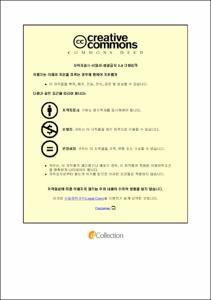직장 여성의 평생교육 참여동기가 직무만족도에 미치는 영향: 자기효능감의 매개효과를 중심으로
- Alternative Title
- The Influence of Working Woman’s Lifelong Education Participation Motivation on Work Satisfaction: Focus on the Mediating Effect of Self-Efficacy
- Abstract
- The purpose of this study was to explore desirable directions for lifelong education of working woman by analyzing how their lifelong education participation motivation influences work satisfaction through the mediating effect of self-efficacy, which, in turn, enhances learning experiences.
An online survey was conducted of 300 Korean working women aged 20 and over who had engaged in lifelong education. The collected data were examined by conducting Pearson’s correlation and Baron and Kenny’s hierarchical regression analyses, using SPSS version 22.0.
The following conclusions can be drawn. First, a statistically significant correlation was found between working woman’s lifelong education participation motivation, self-efficacy, and work satisfaction. This result shows that lifelong education is a major factor that significantly influences self-efficacy and work satisfaction. These two factors are also considered important for determining the development direction of lifelong education. Second, the analysis of the correlation between working woman’s lifelong education participation motivation and work satisfaction showed that self-efficacy was partially mediated, exhibiting a positive effect. This result demonstrates the importance of self-efficacy as well as the need for lifelong education programs that enhance the self-efficacy of working woman.
According to the results of this study, self-efficacy played a partial mediating role in the correlation between working woman’s lifelong education participation motivation and their work satisfaction. Our findings can serve as basic data for developing lifelong education programs that aim to enhance work satisfaction of working woman. Specifically, when developing lifelong education programs for working woman, programs that effectively improve their work satisfaction can be developed if both participation motivation and self-efficacy are considered.
- Issued Date
- 2020
- Awarded Date
- 2020. 8
- Type
- Dissertation
- Publisher
- 부경대학교
- Affiliation
- 부경대학교 교육대학원
- Department
- 교육대학원 평생교육·인적자원개발전공
- Advisor
- 주동범
- Table Of Contents
- Ⅰ. 서론 1
1. 연구의 필요성 및 목적 1
2. 연구문제 5
3. 용어의 정의 6
가. 평생교육 참여동기 6
나. 직무만족도 7
다. 자기효능감 7
Ⅱ. 이론적 배경 8
1. 직장 여성의 평생교육 참여동기 8
가. 직장 여성과 평생교육 8
나. 평생교육 참여동기 10
2. 직무만족도 11
가. 직무만족도의 개념 11
나. 직무만족도의 영향요인 13
3. 자기효능감 15
가. 자기효능감의 개념 15
나. 자기효능감의 구성요인 18
4. 선행연구 분석 20
Ⅲ. 연구방법 22
1. 연구대상 및 자료수집 절차 22
2. 측정도구 24
가. 평생교육 참여동기 척도 25
나. 직무만족도 척도 26
다. 자기효능감 척도 27
3. 자료 처리 및 분석 28
Ⅳ. 연구결과 30
1. 주요변인의 기술통계 30
2. 개인적 배경에 따른 주요변인의 차이 31
가. 개인적 배경에 따른 평생교육 참여동기 차이 32
나. 개인적 배경에 따른 자기효능감 차이 34
다. 개인적 배경에 따른 직무만족도 차이 36
3. 평생교육 참여동기, 자기효능감, 직무만족도의 관계 38
4. 평생교육 참여동기, 자기효능감이 직무만족도에 미치는 영향 40
가. 평생교육 참여동기가 직무만족도에 미치는 영향 40
나. 자기효능감이 직무만족도에 미치는 영향 41
5. 평생교육 참여동기와 직무만족도의 관계에서 자기효능감의 매개효과 검증 42
Ⅴ. 논의 및 결론 46
1. 논의 46
2. 결론 및 제언 48
- Degree
- Master
- Appears in Collections:
- 교육대학원 > 평생교육인적자원개발전공
- Files in This Item:
-
-
Download
 직장 여성의 평생교육 참여동기가 직무만족도에 미치는 영향: 자기효능감의 매개효과를 중심으로.pdf
기타 데이터 / 967.32 kB / Adobe PDF
직장 여성의 평생교육 참여동기가 직무만족도에 미치는 영향: 자기효능감의 매개효과를 중심으로.pdf
기타 데이터 / 967.32 kB / Adobe PDF
-
Items in Repository are protected by copyright, with all rights reserved, unless otherwise indicated.